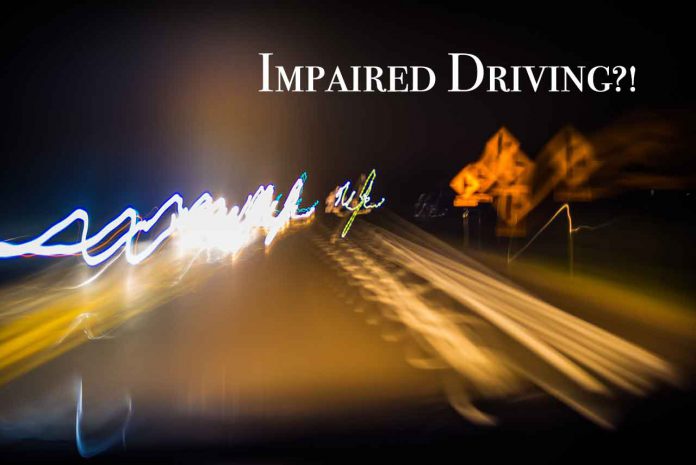Thunder Bay, ON – On Mondays, one of the constants in media is a load of press releases from Police Services with information on impaired driving charges. It is almost as if the decades of public efforts to educate the public have simply failed. It is not restricted to any specific age group as all ages of drivers seem to believe the myth that they can drive drunk or impaired by drugs.
Being charged with impaired operation of a motor vehicle is a serious offense that can have profound and far-reaching consequences on various aspects of your life, from personal and professional repercussions to financial burdens. Understanding these impacts can underscore the importance of making responsible choices and highlight ways to reduce instances of impaired driving.
Personal and Professional Impact
An impaired driving charge can lead to significant personal distress. The stigma associated with such an offense can strain relationships with family and friends. Moreover, it can result in a criminal record, which might affect your ability to travel internationally, as many countries have strict entry policies for individuals with criminal records.
Professionally, an impaired driving charge can be equally damaging. Many employers conduct background checks, and a criminal record may disqualify you from certain job opportunities. Additionally, if your job involves driving or operating heavy machinery, you might face immediate termination.
Careers in education, healthcare, and government often have zero-tolerance policies for criminal offenses, making it challenging to find or maintain employment in these fields.
Media outlets are often contacted years after an impaired charge by the person who was charged because their charges keep coming up on a Google Search. That information has the direct result of impacting their jobs.
Financial Consequences
The financial repercussions of an impaired driving charge are considerable. Here are some of the costs you might incur:
- Legal Fees: Hiring a lawyer to represent you can be expensive, with costs ranging from $2,000 to $10,000 or more, depending on the complexity of your case.
- Court Fines: If convicted, you will likely face substantial fines, which can vary but often exceed $1,000.
- Increased Insurance Premiums: An impaired driving conviction will result in a dramatic increase in your insurance premiums. Insurance companies view convicted impaired drivers as high-risk, leading to premium hikes of 100% or more.
- Other Costs: Additional expenses can include towing and impound fees, mandatory education or treatment programs, and the cost of installing an ignition interlock device on your vehicle.
Court Case Costs
Navigating the court system involves various costs beyond just fines. These can include court administrative fees, costs associated with attending mandatory programs, and potential costs of a conditional discharge or probation supervision.
Reducing Impaired Driving
Preventing impaired driving requires a multi-faceted approach:
- Designate a Sober Driver: Plan ahead and designate a sober driver if you plan to drink.
- Use Public Transportation: Utilize taxis, ridesharing services, or public transit to get home safely.
- Stay Over: If you’re at a friend’s place or an event, consider staying over rather than driving home impaired.
- Educate: Participate in and support educational campaigns about the dangers of impaired driving.
Impaired Driving Statistics in Northwestern Ontario
Statistics from the Ontario Provincial Police (OPP) indicate that impaired driving remains a significant issue in Northwestern Ontario. In 2023, there were over 200 impaired driving charges laid in the region, reflecting a persistent challenge in ensuring road safety. The OPP continues to emphasize the importance of enforcement and public education to combat impaired driving.
Conclusion
The consequences of an impaired driving charge extend well beyond the immediate legal ramifications, affecting various aspects of life, career, and finances. Understanding these impacts and taking steps to prevent impaired driving can help mitigate these risks. By making responsible choices, we can all contribute to safer roads and communities.





